As an aficionado of cold climates, I made a recent foray into the alpine and sub-alpine zones of the Colorado Rockies near my home in Aspen.
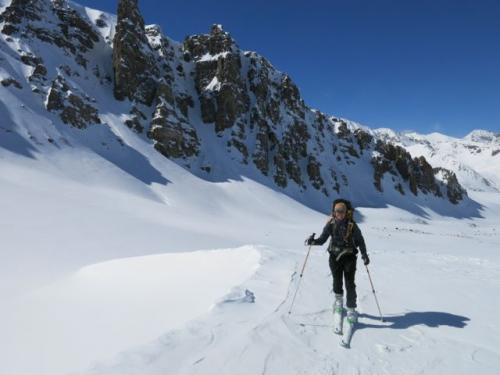 The high alpine near Pearl Pass, Colorado.
The high alpine near Pearl Pass, Colorado.
My wife, some friends, and I, spent 3 days ski touring between back-country huts on the Braun Hut System. Along the way I couldn't help but think about my upcoming trip to the Arctic and the North Slope of Alaska. Like Jimmy Buffett, i'll be singing about "Changes in latitude, changes in attitude". I think he meant a tropical latitude, but i'm going polar! Here at home, I can find a similar change in climate and wildlife with a change in altitude. On our ski trip we crossed from the deciduous Aspen forest of the Montane zone (8-10,000 ft), to the Spruce/Fir forest of the Sub-Alpine (10-11,500), and finally to the windswept and treeless Alpine Tundra (11,500+). Along the way I encountered some of the relatives of animals I hope to see at the Toolik Research Station. For more info visit: http://shelledy.mesa.k12.co.us/staff/computerlab/ColoradoLifeZonesInformation_Elevation_Climate.html
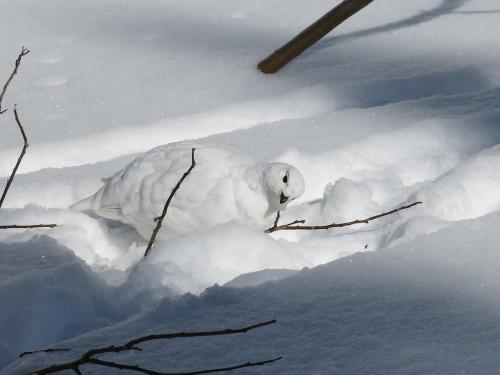 White-tailed ptarmigan feeding on willow buds.
White-tailed ptarmigan feeding on willow buds.
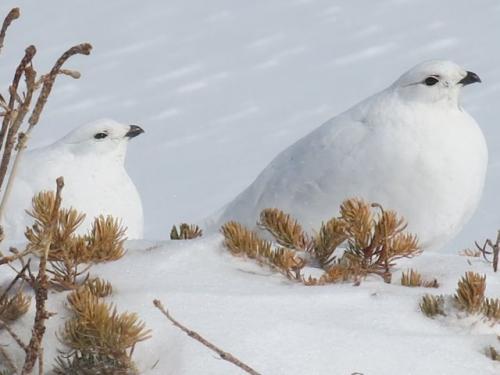 Ptarmigan are supremely adapted for year round life in the arctic and alpine.
Ptarmigan are supremely adapted for year round life in the arctic and alpine.
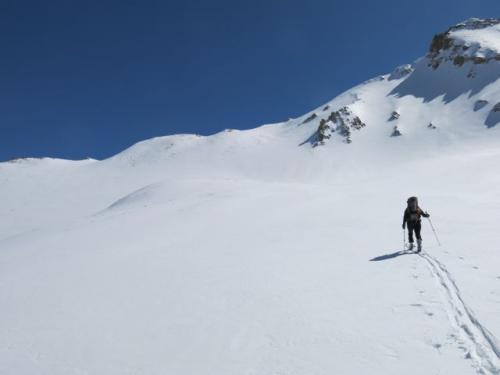 The glaciers here are gone but not forgotten...
The glaciers here are gone but not forgotten...
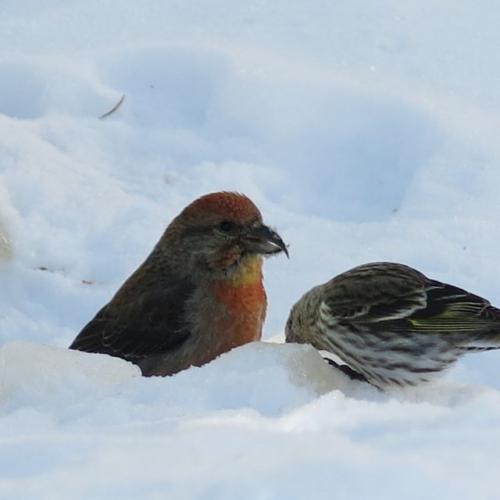 These Red Crossbills are always associated with conifer forests. Their unique beaks are specialized for extracting the seeds from pine cones. We watched a small flock of these year round residents of the sub-alpine life zone.
These Red Crossbills are always associated with conifer forests. Their unique beaks are specialized for extracting the seeds from pine cones. We watched a small flock of these year round residents of the sub-alpine life zone.

Comments